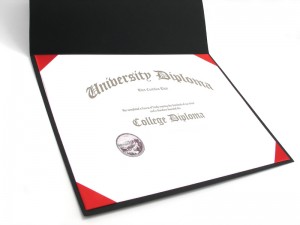 Parents raise children, and often help pay for college educations, so they feel they have a right in lending their advice regarding selecting a major.
Parents raise children, and often help pay for college educations, so they feel they have a right in lending their advice regarding selecting a major.
However, it’s the child’s future at stake, so they should have a say regarding their interests and passions. Yet, the wise know that not every diploma earns a good salary, so in order to steer children in the right direction, parents and students need to consider the following.
Gain Experience
A young high school student may have a great science teacher that inspires the child to study chemistry in college. Yet, the charisma of a teacher does not guarantee a student’s future success in an industry.
It’s important for aspiring workers to gain experience in a field, whether that means working a part-time job through high school or doing volunteer work while earning college credits. Students often switch majors, and it’s a person’s prerogative to change interests as they mature, yet college credits cost. Students need to do all they can to complement theory with actual experience in a given field.
Speak with a Professional
Who better to ask about a profession than those with current jobs? Students benefit from keeping contact with a professional within a field of interest and inquiring about college workloads, job opportunities, and daily tasks regarding the profession.
Some have grand illusions about making a lot of money doing a job they never actually performed. Speaking with a professional helps align insinuation with reality and can either help fuel or diffuse a student’s interest.
Choose a Practical Minor
Some tell students not to worry about how much money they will make in the future, but it’s practical to think about the eventual value of your time and money spent. Those who choose majors due to love and not money benefit from selecting a more practical minor area of study.
That way, if the philosophy degree doesn’t materialize into much on the job market, a minor in business helps get an entry level position to begin a career. In an ideal world, students would make great money doing what they love, but in the real world, it’s important to prepare for the actual job market.
Get Help
The dialogue about choosing a major should involve other parties aside from the parents and student. An objective third party can steer students toward goals while maintaining the latter’s happiness.
Professional services provide resources like these templates and give advice about college majors and chosen industries. In addition to high school and college career planning services and counselors, professionals are available who have the insight that helps students and parents make the right decisions.
It’s difficult to understand that the choices you make now will influence your lifestyle and happiness in the future. But, it’s important for students to focus on the decision of choosing a major (and minor!) Speak with those already working, gain experience in a field, and seek services that help high school graduates make present decisions that help benefit the future.
__________________
Jim Hearne is a high school counselor and busy dad of four. When he has the time, he enjoys helping others by sharing what he has learned over the years. Look for his helpful posts mainly on career, education and job blog sites.









